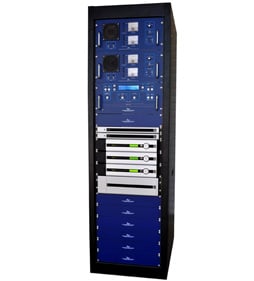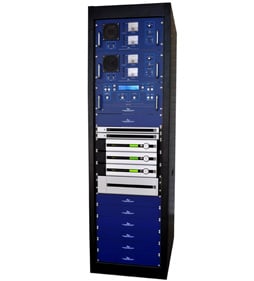What is Differential GPS (DGPS) and why could it be important to you?
GPS systems have created the most accurate positioning systems in human history. The system in your car knows when you come to the corner and which way to turn. But even with that precision, there are applications that would benefit from even more exact positioning measurements. For example, a trucking company might like to know on which side of the street their vehicle is parked. That is where DGPS comes in.
Why is there variation anyway? It works out that small errors creep into the measurement and the resulting calculation. GPS systems measure the time it takes for a signal to travel from a satellite to a target ground unit. In order to get a completely accurate reading four satellites are used for the positioning measurement and the results are triangulated to get the exact position of the target.
GPS satellites are approximately 12,500 above the earth’s surface, and the signal must pass through some atmospheric levels, particularly the ionosphere and troposphere, that introduce very minor variations in the time to send data from the targeted ground unit to the satellite. Because the signals travel at the speed of light, and the speed of light is over 186,000 miles per second, small errors can create huge discrepancies. For example, a delay of one millionth of a second would result in a mistake in
positioning of about 300 meters. DGPS adjusts for that error.

DGPS addresses this issue by placing a DGPS ground reference station transmitter in a precisely known position. The DGPS system then calculates the difference between the GPS calculated position for the ground reference station and the actual position of the ground reference station. This difference is then applied to any target in the neighborhood where you wish to measure a more accurate position.
The accuracy of the
DGPS receivers will degrade as the ground reference station is further from the target you are measuring. However, if the DGPS ground reference station is within even 150 miles of the target you are measuring, it is close enough to refine the measured position of the target.
Depending on how timely the positioning requirement is, DGPS can be real time, calculated as the system measures the position of the target or it can be done after the fact by correcting the positions of one or more targets.
As the use of DGPS systems becomes more prevalent and less expensive, they become more valuable to every day users. Clearly the military requires very precise measurements across their battle scene. The DGPS receiver system run by the US and Canadian Coast Guards that guides shipping, especially in harbor as they maneuver. But other private users can find the increased accuracy useful as well.
As these DGPS beacon systems become even more accurate and available to the general public, they will affect many things. Imagine your car driving itself because your DGPS knows how close the adjacent cars are.


 DGPS addresses this issue by placing a DGPS ground reference station transmitter in a precisely known position. The DGPS system then calculates the difference between the GPS calculated position for the ground reference station and the actual position of the ground reference station. This difference is then applied to any target in the neighborhood where you wish to measure a more accurate position.
DGPS addresses this issue by placing a DGPS ground reference station transmitter in a precisely known position. The DGPS system then calculates the difference between the GPS calculated position for the ground reference station and the actual position of the ground reference station. This difference is then applied to any target in the neighborhood where you wish to measure a more accurate position. 

Leave a Comment